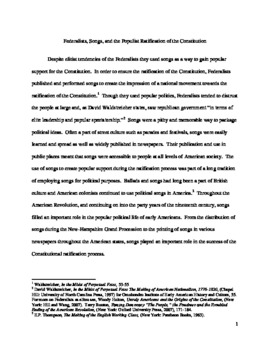| dc.contributor.author | McCullough, Morgan | en_US |
| dc.contributor.editor | Capps, Sarah | en_US |
| dc.contributor.editor | Collins, Adriana | en_US |
| dc.contributor.editor | Dixon, Arthur | en_US |
| dc.contributor.editor | McCullough, Morgan | en_US |
| dc.contributor.editor | Miles, Sarah | en_US |
| dc.contributor.editor | Robertson, Terrence | en_US |
| dc.contributor.editor | Rodríguez, Monique | en_US |
| dc.contributor.editor | Romines, Richard | en_US |
| dc.contributor.editor | Scheller, Austin | en_US |
| dc.date.accessioned | 2016-11-15T21:54:57Z | |
| dc.date.accessioned | 2021-04-14T15:12:31Z | |
| dc.date.available | 2016-11-15T21:54:57Z | |
| dc.date.available | 2021-04-14T15:12:31Z | |
| dc.date.issued | 2015-04-01 | en_US |
| dc.identifier.uri | https://hdl.handle.net/11244.46/1221 | |
| dc.description | Honorable Mention for the Griswold Prize for Excellence in Undergraduate Historical Scholarship | en_US |
| dc.description.abstract | Despite elitist tendencies of the Federalists they used songs as a way to gain popular support for the Constitution. In order to ensure the ratification of the Constitution, Federalists published and performed songs to create the impression of a national movement towards the ratification of the Constitution. Though they used popular politics, Federalists tended to distrust the people at large and, as David Waldstreicher states, saw republican government “in terms of elite leadership and popular spectatorship.” Songs were a pithy and memorable way to package political ideas. Often a part of street culture such as parades and festivals, songs were easily learned and spread as well as widely published in newspapers. Their publication and use in public places meant that songs were accessible to people at all levels of American society. The use of songs to create popular support during the ratification process was part of a long tradition of employing songs for political purposes. Ballads and songs had long been a part of British culture and American colonists continued to use political songs in America. Throughout the American Revolution, and continuing on into the party years of the nineteenth century, songs filled an important role in the popular political life of early Americans. From the distribution of songs during the New-Hampshire Grand Procession to the printing of songs in various newspapers throughout the American states, songs played an important role in the success of the Constitutional ratification process. | en_US |
| dc.description.uri | http://history.ou.edu/journal-2015 | en_US |
| dc.relation.ispartofseries | OU historical journal ; 4 (Spring 2015 | en_US |
| dc.title | Federalists, Songs, and the Populist Ratification of the Constitution | en_US |
| dc.contributor.sponsor | Folsom, Raphael | en_US |
| dc.contributor.sponsor | Griswold, Robert | en_US |
| dc.contributor.sponsor | Olberding, Garret | en_US |
| dc.description.undergraduate | undergraduate | |
